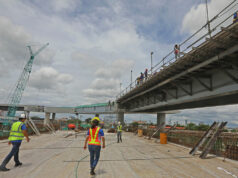19 Pinoy films in Busan film fest
NINETEEN Filipino films have made their way to South Korea’s 23rd Busan International Film Festival (BIFF) as Philippines is the festival’s Country of Focus, marking 100 years of Philippine Cinema.
The BIFF runs from Oct. 4 to 13.
“We cannot stress how great of an honor it is to be selected as the Country of Focus in Busan in time for our centennial… being the Country of Focus mean greater exposure for our filmmakers and more platforms for us to showcase this work,” Mary Liza Dino, chairperson and CEO of the Film Development Council of the Philippines (FDCP) said in a press release.
Of the 19 films, 10 are featured in the festival’s special retrospective program. Entitled “Cinema as a Response to the Nation” the lineup includes A Portrait of the Artist as Filipino (1965) by Lamberto V. Avellana, Ganito Kami Noon, Paano Kayo Ngayon? (1976) by Eddie Romero, Tatlong Taong Walang Diyos by Mario O’Hara (1976), Ang Panday (1980) by Fernando Poe, Jr., Cain at Abel (1982) by Lino Brocka, Moral (1982) by Marilou Diaz-Abaya, Himala by Ishmael Bernal (1982), Bayaning 3rd World (2000) by Mike de Leon, Dekada ’70 (2002) by Chito S. Roño, and Ang Damgo ni Eleuteria (2010) by Remton Siega Zuasola.
“[When choosing the films] we asked the question, ‘which films broke boundaries in the period it was created?’ It was, at the very core, how we chose our films,” Tito G. Valiente, an educator and a member of the Manunuri ng Pelikulang Pilipino (MPP), told the media during a press conference on Oct. 2 at Max’s Restaurant in Quezon City.
“This was hard because we are condensing the 100 years of Philippine cinema in 10 films,” said Teddy Co, director and a commissioner at the National Commission for Culture and the Arts (NCCA).
Mr. Co bemoaned the fact that much of the country’s cinematic history was lost during the Second World War and to poor storage, which limited their scope to post-war films, this even though the Philippines has produced more than 10,000 films since the release of the first Filipino full-length film, Dalagang Bukid by Jose Nepomuceno in 1919.
The retrospective will be accompanied by a talk titled “Spotlight: Philippines, Cinema Centennial Talks” featuring actors Christopher de Leon (who starred in Cain at Abel, Ganito Kami Noon, Paano Kayo Ngayon?, Dekada ’70, and Tatlong Taong Walang Diyos), Joel Torre (Bayaning 3rd World), Sandy Andolong (Moral), and Piolo Pascual (Dekada ’70).
Aside from the 10 films presented in the retrospective, nine films are included in the festival’s A Window on Asian Cinema Section. These are Citizen Jake (2018) by Mike de Leon, Alpha: The Right to Kill (2018) by Brillante Ma. Mendoza, The Eternity Between Seconds (2018) by Alec Figuracion, Gusto Kita with all My Hypothalamus (2018) by Dwein Baltazar, Lakbayan (2018) by Lav Diaz, Brillante Ma. Mendoza and Kidlat Tahimik, and Signal Rock (2018) by Chito S. Rono.
Signal Rock is also the country’s official entry to the 91st Academy Awards Foreign Language Film category.
Two short films also made their way to the festival’s Wide Angle Short Film Showcase — Last Order (2018) by Joji Alonso and Manila is Full of Men Named Boy (2018) by Stephen Lee — while the Wide Angle Documentary Showcase will feature Land from God (2018) by Stephen Lee.
Aside from the films, the BIFF is launching a book entitled Centennial Anniversary of the Philippine Cinema on Oct. 5 at the Busan Cinema Center. Educator and film scholar Nick de Ocampo, alongside Mr. Valiente and Mr. Co, wrote individual essays for the publication.
The FDCP will also be holding an exhibit curated by Mr. de Ocampo on the history of Philippine cinema titled Cinema Un/Bound: Archipelagic Cinema of the Philippines which will be on view at the Busan Cinema Center from Oct. 6 to 11. — Zsarlene B. Chua



